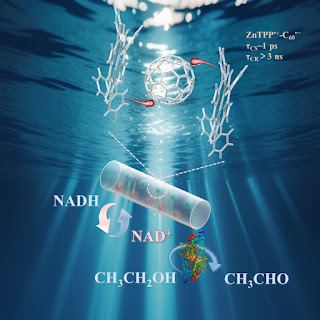NMN health supplement sources
Nicotinamide Mononucleotide (NMN) is a compound that has gained attention in the field of anti-aging research due to its potential role in boosting NAD+ levels, a coenzyme essential for various cellular functions. NMN is a precursor to NAD+ synthesis and has been studied for its potential health benefits, including improved metabolism, enhanced energy production, and protection against age-related decline. This article explores sources of NMN health supplements, including natural sources and commercial products.
1.
Natural Food Sources:
·
Although NMN itself is
not abundant in dietary sources, certain foods contain precursors or compounds
that can be metabolized into NMN in the body.
·
Examples of foods rich
in precursors to NMN include:
·
Vegetables: Green
vegetables such as broccoli, cabbage, and cucumbers contain high levels of
nicotinamide riboside (NR), a precursor to NMN.
·
Fruits: Avocado,
tomatoes, and edamame are sources of NR and other NAD+ precursors.
·
Dairy Products: Cow's
milk and dairy products such as yogurt and cheese contain small amounts of NR
and other NAD+ precursors.
·
Fish and Meat: Some
types of fish (e.g., salmon, tuna) and meat (e.g., beef, chicken) contain trace
amounts of NAD+ precursors.
2.
Commercial NMN
Supplements:
·
Due to the limited
availability of NMN-rich foods and the challenges associated with obtaining
sufficient levels of NMN through diet alone, many individuals turn to
commercial NMN supplements.
·
NMN supplements are
available in various forms, including capsules, tablets, powders, and
sublingual formulations.
·
When selecting an NMN
supplement, it is essential to choose a reputable manufacturer that adheres to
quality standards and uses high-quality ingredients.
·
Look for supplements
that contain pure NMN without unnecessary additives or fillers, and consider
third-party testing for purity and potency.
3.
NMN-Rich Foods and
Supplements in Traditional Medicine:
·
Some traditional
medicines and herbal remedies contain ingredients that are purported to boost
NAD+ levels or provide NAD+ precursors.
·
For example, certain
herbs such as ginseng, astragalus, and ginkgo biloba are believed to support
cellular health and metabolism, although scientific evidence regarding their
effects on NAD+ levels is limited.
·
Traditional medicine
systems such as Traditional Chinese Medicine (TCM) and Ayurveda may recommend
specific herbs, herbal formulations, or dietary practices aimed at promoting
vitality and longevity, which may indirectly support NAD+ levels.
4.
Synthetic NMN
Supplements:
·
In addition to natural
NMN sources, synthetic NMN supplements are available for those seeking a more
concentrated and standardized form of the compound.
·
Synthetic NMN
supplements are typically produced through chemical synthesis or enzymatic
processes and may offer precise dosing and bioavailability compared to natural
sources.
·
When considering
synthetic NMN supplements, it is essential to consult with a healthcare
professional to determine the appropriate dosage and ensure safety, especially
for individuals with underlying health conditions or those taking medications.
5.
Considerations and
Precautions:
·
While NMN supplements
are generally considered safe for most people when taken as directed, there are
some considerations and precautions to keep in mind.
·
It is essential to
follow the recommended dosage instructions provided by the manufacturer or
healthcare professional, as excessive intake of NMN may lead to adverse
effects.
·
Individuals with certain
medical conditions or those taking medications should consult with a healthcare
provider before starting NMN supplementation to avoid potential interactions or
adverse reactions.
·
Pregnant or
breastfeeding women should also consult with a healthcare professional before
using NMN supplements, as safety data in this population is limited.
In conclusion, NMN health supplements can be
sourced from natural food sources, commercial products, traditional medicine
practices, and synthetic formulations. While natural sources provide NAD+
precursors and other beneficial nutrients, commercial supplements offer
concentrated and standardized forms of NMN. When considering NMN
supplementation, it is essential to choose high-quality products, follow
recommended dosage guidelines, and consult with a healthcare professional if
necessary. By incorporating NMN supplements into a balanced lifestyle,
individuals may support cellular health, metabolism, and overall well-being.
.jpeg)




Comments
Post a Comment